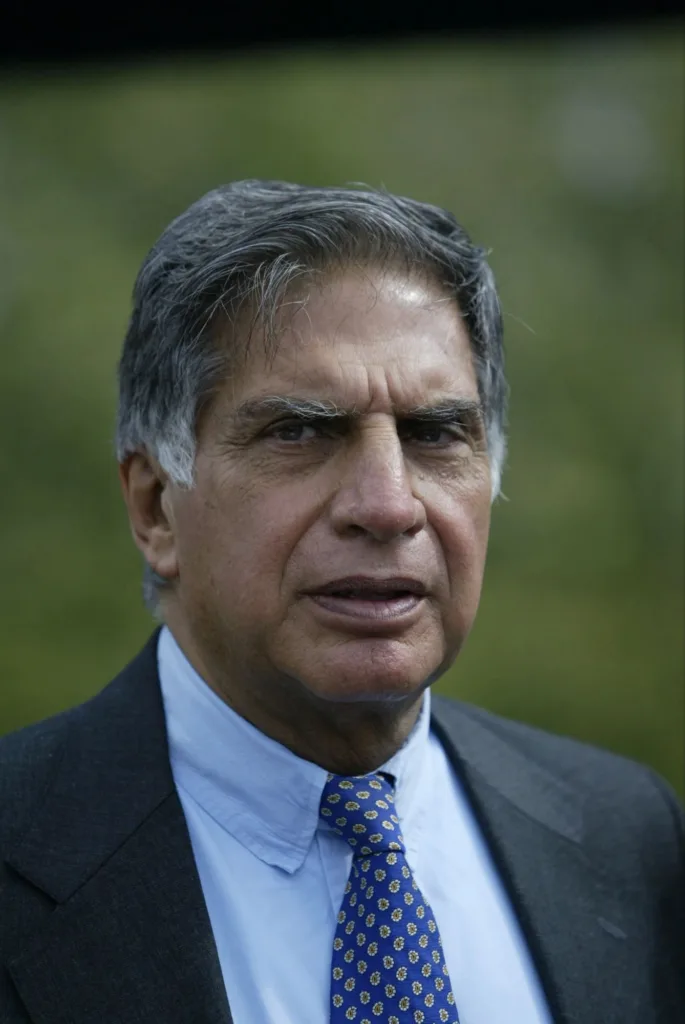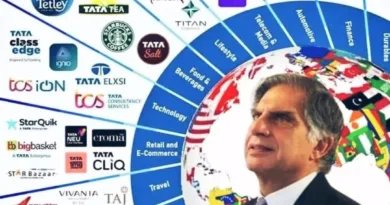Ratan Tata: A Tribute to a National Icon and His Enduring Legacy

Introduction: Remembering Ratan Tata
The recent passing of Ratan Tata, a figure widely regarded as a national icon in India, has elicited a profound sense of loss across the country. As the former chairman of Tata Sons, his leadership and vision transformed the Tata Group into one of the most respected conglomerates globally. His remarkable journey began in 1991 and continued until his retirement in 2012, wherein he oversaw the expansion of the organization into various sectors, including steel, automobiles, IT, and consumer goods. During this time, he notably spearheaded the development of the Tata Nano, the world’s most affordable car, demonstrating his commitment to making technological advancements accessible to all levels of society.
Ratan Tata’s influence extended beyond the realm of business; he has been a paragon of social responsibility and philanthropy. Under his stewardship, the Tata Group made substantial contributions to education, healthcare, and rural development, reflecting a deep-rooted belief in the betterment of society. He often advocated for sustainable practices, highlighting the importance of ethical governance and the welfare of employees. His legacy is imprinted on the cultural and economic landscape of India, as he symbolizes a sense of integrity, innovation, and compassion.
The impact of his demise reverberates not only through the corridors of corporate power but also throughout various communities that benefited from his initiatives. As the nation collectively reflects on his milestones, it becomes apparent that Ratan Tata’s contribution transcends the boundaries of his professional achievements. This section serves as an opportunity to pay homage to his life while setting the tone for a detailed exploration of his enduring legacy and the values he championed throughout his storied career.
Early Life and Education
Ratan Tata, born on December 28, 1937, in Surat, India, hails from a prominent business family known for its significant contributions to Indian industry. His father, Naval Tata, was a successful industrialist, and his mother, Sonoo Tata, belonged to the influential Tata family. Growing up in such an environment instilled in him a profound understanding of business ethics and the responsibilities that come with wealth. The early separation from his mother and subsequent nurturing by his extended family played a crucial role in his upbringing, fostering resilience and independence.
Tata spent part of his childhood in Mumbai, where he attended the Campion School. His early education was marked by a strong emphasis on discipline and academic performance. Once he completed school, he pursued higher education at the prestigious Massachusetts Institute of Technology (MIT) in the United States, where he studied architecture and structural engineering. This academic background provided him with a unique perspective, blending technical knowledge with creative thinking, which later would influence his approach to business and innovation.
Returning to India, Tata also attended the Harvard Business School, where he expanded his understanding of management principles and global business practices. His education laid the groundwork for a successful career, equipping him with the necessary skills to drive the Tata Group’s expansion in the years to come. The exposure to diverse academic experiences helped shape his vision of business as a tool for social change and national progress. As he took on leadership roles within the Tata Group, Ratan Tata’s foundational experiences, combined with his education, positioned him not only as a successful business leader but also as a national icon dedicated to fostering development in India.
Career Milestones: Joining the Tata Group
Ratan Tata’s journey with the Tata Group commenced in 1962 when he joined the company as an intern after completing his education from the United States. His initial years were spent gaining firsthand experience in various branches, which laid a strong foundation for his future leadership roles. In 1971, he formally joined the Tata Group, assuming the position of a director of Tata Industries Limited. This pivotal moment marked the beginning of an illustrious career characterized by remarkable leadership and innovative thinking.
One of the defining endeavors under Ratan Tata’s stewardship was his commitment to the internationalization and diversification of the Tata Group. By the late 1990s, he spearheaded the acquisition of several foreign firms, which not only enhanced the group’s global presence but also contributed significantly to India’s economic evolution. Notably, the acquisition of Tetley Tea in 2000 served as a testament to Tata’s strategic vision, expanding the group’s footprint into international markets.
Moreover, Ratan Tata was instrumental in launching iconic products that reflected both innovation and Ratan Tata’s deep understanding of market dynamics. The introduction of the Tata Nano in 2008, touted as the world’s most affordable car, was a bold move aimed at making automobile ownership accessible to the masses. This endeavor underlined his focus on developing products that catered to the aspirations of the Indian middle class.
Throughout his tenure, Ratan Tata’s leadership style fostered a culture of ethical business practices and corporate social responsibility within the Tata Group. His ability to navigate challenges and seize opportunities transformed the conglomerate into a global powerhouse with presence in multiple sectors ranging from steel and automobiles to IT and hospitality. As a visionary leader, Ratan Tata’s career milestones continue to inspire future generations and serve as a blueprint for sustainable business practices.
Philosophy of Leadership and Management Style
Ratan Tata, the eminent industrialist and former chairman of Tata Sons, is renowned not only for his business acumen but also for his distinct management philosophy and leadership style. At the core of Tata’s approach is an unwavering commitment to ethics, integrity, and social responsibility. These qualities have played a pivotal role in differentiating him from other business leaders in India and globally.
Ratan Tata’s leadership is characterized by a profound emphasis on ethical practices, which he believes are essential for sustainable business operations. His management style encourages transparency and accountability, ensuring that corporate decisions align with the best interests of both the company and society at large. This integrity-driven leadership cultivates trust among stakeholders and fosters a corporate environment where employees feel valued and respected.
Moreover, Tata’s approach to corporate governance is notable for its inclusivity. He actively promotes a culture of open dialogue, encouraging employees at all levels to contribute their insights and perspectives. This interaction not only empowers employees but also leads to more informed and balanced decision-making. Tata’s belief in supporting his workforce is exemplified through various initiatives aimed at talent development, employee welfare, and community engagement, demonstrating his holistic view of corporate responsibility.
Additionally, Tata’s strategic foresight is evident in his willingness to embrace innovation and adapt to changing market dynamics. He recognizes the importance of investing in research and development, which has propelled Tata Group into diverse sectors such as technology and steel, among others. This adaptability, combined with a principled management style, has earned him respect as a visionary leader.
In essence, Ratan Tata’s unique blend of ethical leadership, commitment to social responsibility, and inclusive management practices have solidified his legacy as a beacon of integrity in the corporate landscape. His philosophy continues to inspire present and future leaders, emphasizing that success is defined not merely by profit but also by the positive impact one creates on society.
Contributions to Indian Industries
Ratan Tata, a visionary leader, has played an instrumental role in reshaping the industrial landscape of India. His tenure as Chairman of Tata Sons from 1991 to 2012 saw remarkable innovations and expansions across various sectors, including automobiles, steel, and information technology. One of the most notable achievements during his leadership was the introduction of the Tata Nano, a car designed to be the world’s cheapest at a price point accessible to a larger demographic. This project was not merely about affordability; it represented Ratan Tata’s forward-thinking approach, emphasizing engineering excellence and consumer needs. The Nano fundamentally altered perceptions of what could be achieved in automotive design and manufacturing, inspiring other companies to rethink their strategies for reaching emerging markets.
In the steel industry, Tata’s leadership saw the establishment of Tata Steel as one of the largest and most respected companies globally. Under his guidance, Tata Steel expanded its operations and invested in modernizing its facilities, adopting sustainable practices, and enhancing overall productivity. This commitment to innovation has solidified Tata Steel’s position as a leader in the industry, which in turn has contributed significantly to India’s economic growth.
Tata’s influence also extended to the information technology sector. By nurturing Tata Consultancy Services (TCS), he propelled it to become one of the largest IT services firms in the world. His understanding of the global market dynamics and technological advancements enabled TCS to thrive, setting benchmarks for quality and service delivery within the industry. Tata’s vision encompassed not only expansion but also fostering a culture of innovation and ethical business practices that the Tata Group is known for today.
Overall, Ratan Tata’s contributions have profoundly influenced the industrial evolution in India, demonstrating how visionary leadership and a commitment to excellence can yield lasting benefits for the nation and its industries.
Philanthropy and Social Initiatives
Ratan Tata, a prominent industrialist, is as well-known for his philanthropy as for his business acumen. Through the Tata Trusts, he has championed numerous charitable initiatives that focus on alleviating the plight of disadvantaged communities in India. His commitment to social causes underscores a belief that businesses should play a pivotal role in society, a philosophy that has characterized the Tata Group for generations.
One of the key areas where Ratan Tata has made a substantial impact is education. The Tata Trusts have been instrumental in fostering educational opportunities for underprivileged children. They have established schools, scholarships, and vocational training programs aimed at empowering youth in rural and urban areas alike. By promoting accessible education, Tata’s initiatives aspire to break the cycle of poverty and enable individuals to achieve their full potential.
Healthcare is another critical focus of Ratan Tata’s philanthropic efforts. The Tata Trusts have undertaken significant initiatives to improve healthcare access, particularly in rural regions. Through partnerships with various organizations, they have facilitated the establishment of hospitals and clinics, ensuring that essential medical services are available to the underserved. Additionally, these initiatives often promote health awareness and preventive care, addressing the broader issue of public health in India.
Ratan Tata’s dedication extends to rural development initiatives that foster sustainable growth and self-sufficiency in rural communities. Programs aimed at enhancing agriculture, providing financial support, and improving infrastructure are essential components of his vision. By empowering local populations through skill development and resource management, Tata’s initiatives are setting a precedent for sustainable community development.
Ultimately, the philanthropic legacy of Ratan Tata transcends his industrial achievements, showcasing a profound commitment to social responsibility. His efforts through the Tata Trusts continue to uplift countless lives, demonstrating that genuine impact can be achieved through dedicated service to society.
Global Influence and Recognition
Ratan Tata, the former chairman of Tata Sons, has significantly impacted global business landscapes, showcasing a remarkable ability to influence and inspire on an international scale. Under his leadership, the Tata Group expanded its reach into diverse sectors, establishing a presence in over 100 countries. This expansion not only contributed to the Indian economy but also highlighted India’s growing role in global markets. Ratan Tata’s visionary approach facilitated the acquisition of major international companies, positioning Tata Group as a formidable player in various industries such as steel, automobiles, and technology.
A hallmark of Tata’s tenure is his advocacy for ethical business practices and corporate social responsibility, which garnered recognition not only in India but also on international platforms. His commitment to these values earned him numerous awards and honors from esteemed organizations worldwide. Notably, he was conferred with the prestigious Padma Bhushan and Padma Vibhushan awards, symbolizing his exemplary contributions to trade and industry. In addition to these accolades, he has been the recipient of honorary doctorates from several universities, further emphasizing his dedication to fostering education and innovation.
Ratan Tata’s role in various international business forums has further established his reputation as a respected leader. He has participated in discussions at the World Economic Forum and other prestigious gatherings, where he has consistently advocated for sustainable development and inclusive growth. His global influence is also reflected in his efforts to strengthen ties between India and other nations, creating a collaborative environment that has facilitated business opportunities and investment. This networking ability underscores Tata’s status as a bridge-builder, enhancing his legacy not just within India but across the world.
Personal Life and Values
Ratan Tata, a revered figure in the Indian business landscape, is known not only for his remarkable accomplishments but also for the values that have shaped his character and leadership style. Born into a family with a long history in the Tata Group, Ratan Tata was raised in an environment that emphasized integrity, humility, and social responsibility. These values became the backbone of his approach to business and philanthropy throughout his distinguished career.
An example of Ratan Tata’s humility can be seen in how he interacted with his employees. He often chose to travel in economy class when flying domestically, which not only showcased his modest nature but also resonated with his belief in equality. Ratan Tata actively engaged with individuals at all levels within the organization, listening to their insights and fostering an inclusive work culture. This genuine approach has made him a respected figure who embraces collaboration and teamwork.
Resilience is another key characteristic that Ratan Tata has showcased. During his tenure as chairman, he faced numerous challenges, including the acquisition of Jaguar Land Rover and the catastrophic Mumbai attacks that targeted the Taj Mahal Palace Hotel. Instead of shying away from these crises, he displayed unwavering strength and determination, steering his company through turbulent waters while maintaining a focus on long-term goals. His ability to adapt and persist amid adversity has inspired countless individuals, both in India and abroad.
Beyond the corporate sphere, Ratan Tata’s compassion is evident in his philanthropic efforts. He has championed various social initiatives aimed at improving education, healthcare, and rural development in India. His belief in giving back to society reflects his understanding that true success lies beyond financial gains. Ratan Tata’s values and personal anecdotes paint a picture of a dedicated leader, a humble individual, and a caring philanthropist, all of which contribute to his enduring legacy in the hearts of many.
Legacy and Future Outlook
Ratan Tata’s legacy transcends his contributions to the Tata Group; it serves as a pivotal framework for future generations of entrepreneurs and business leaders in India. His principles of ethical leadership, innovation, and social responsibility have infused a new direction in Indian industry that emphasizes not just profit, but also purpose. Tata’s journey illustrates how businesses can thrive while adhering to a strong moral compass, showcasing the importance of corporate governance and integrity in fostering sustainable growth.
As the pace of globalization continues to accelerate, Ratan Tata’s vision of business as a vehicle for societal change stands out as a guiding principle for upcoming leaders. The importance of innovation has never been more evident, and Tata’s emphasis on investing in research and development serves as a reminder of the need to embrace change actively. The introduction of groundbreaking products like the Tata Nano and the expansion of Tata Consultancy Services (TCS) into global markets exemplifies his foresight and agility in navigating the complexities of the modern business world.
Moreover, Tata’s commitment to philanthropy encourages a culture of giving back to the community, underlining the notion that success is not merely measured by economic metrics. As future leaders look to him for inspiration, they should internalize the values that Ratan Tata championed throughout his illustrious career, focusing on sustainability, inclusivity, and ethical decision-making. Embracing these values can not only foster individual growth but can also contribute to the overall advancement of Indian industry. Ratan Tata’s enduring legacy offers a wealth of insights for aspiring entrepreneurs. By embedding his principles into their own lives and careers, they can honor his memory while driving innovation and social change, paving the way for a more responsible and prosperous business landscape in India.


